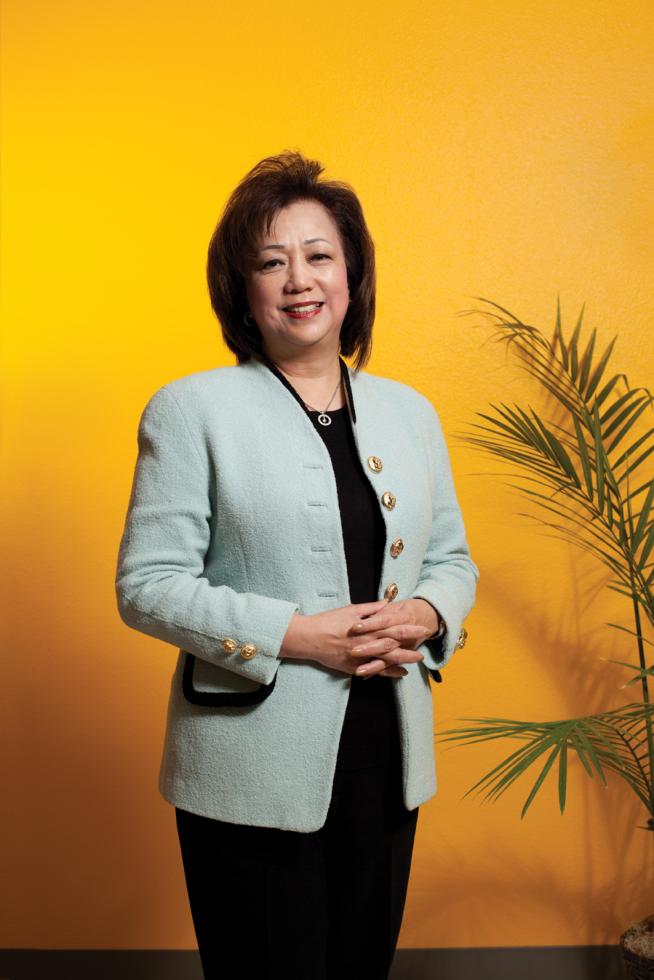Back in 1985, Margaret Wong saw potential in China’s booming economy and took her Sacramento-based lighting company, McWong International Inc., overseas.
“I had a vision of China. That it will be emerging, and there will be great opportunities,” Wong says. China, at the time, was evolving into a major exporting hub, so acting on her vision, Wong began purchasing products from China to strengthen her burgeoning business. Today, McWong controls four manufacturing factories in China.
With McWong International growing exponentially, Wong says it’s a great time for small-business owners to participate in the Chinese economy — if they’re willing to tackle the market differences. She recently discussd how business owners in the Capital Region can overcome obstacles abroad.
Comstock’s: How can a small-business owner start doing business in China?
Wong: The key thing is you have to know China. How do they have their hierarchy of decision-making? How are the decisions being made? How do they select products? How do they buy products? You need to have a good understanding. You need a due understanding of how they do business and where they’re coming from. It’s very important.
A lot of times, a U.S. company has a lot of products that fit the United States. But they’re not necessarily selling products to what the [Chinese] client really wants based on the differences, the infrastructure, the culture, their mentalities. Their whole decision-making process is very different. I think that’s why we have to have the mindset of putting yourself in their shoes and understanding where they’re coming from. A lot of times, American companies think everybody is the same as us, but they’re not. Not just the language; that’s the least problem. It’s the culture differences; the economic structure is very different. You have to understand that.
Comstock’s: You call your approach the “ABCDE” method of doing business in China. Tell us about that.
Wong: My A is to accept the differences. There are fundamental differences between two countries. India, China or France; they’re different than us. We cannot do business our way based on our mentalities, our needs. It will be very difficult.
The B is you got to believe. Be very open-minded, and understand China and the business structure. [Understand] intellectual properties, human rights and all the legal disciplines. You got to mentally think that things are changing, they’re improving, but they’re not on the same level of understanding those legal implications.
C is my connections. A lot of times, the China trade is very much depending on relationships, who you know and your connections. A lot of Chinese are Confucians. It’s about the hierarchy. It’s very much emphasized on the hierarchy, your teacher, your superior. This hierarchy is very important; the top people make the decision. The United States comes from democracy, a lot of group decisions. It’s very democratic. China, traditionally, is not.
So if you know the mayor of the city, the mayor can override a lot of decision-making, as opposed to here, knowing the mayor of the city doesn’t mean you can get the business. There, the mayor is like the king, so if the mayor says something, the rest will listen. It’s a little different. If you know them, that’s one thing, if they trust you, it’s another. If they trust you, knowing that you’ve developed a relationship with them, it’s more important to them what kind of product you’re selling.
My D is again accepting and believing the fundamental differences. I’m still going back to the differences of the cultural and economic and market structure and the decision-making process, the governmental hierarchy; all that are different. They’re very different in making decisions and who’s going to be in a company making a decision.
Another thing is the E. To engage. It’s the engagement. You need to develop some trust. You need to develop a business arrangement. This is also very important.
Comstock’s: What are some other cultural differences small-business owners need to know to be successful in China?
Wong: Saving face is very important to some of these Chinese decision-makers. A lot of times, they don’t necessarily tell you the bottom line, but they will ask you a lot of questions upfront that may be intimidating. In other words, it’s, ‘How much you want to buy?’ They are never going to tell you. Or, ‘What do you want to buy?’ They won’t tell you. Because either they don’t know what they want, or they don’t want to expose themselves. So here, you will be more open and say, ‘This is my rock-bottom price.’
You negotiate, but Chinese do not like open price. I think they like to get a lot from you before they make up their mind. They’d rather have you give them a lot before they come up with a conclusion, and it’s also like that at a government-owned entity. In China, it’s changing a lot from government-owned to privately owned. The more privately owned, the more closer to the formalities of what we have.
You have to do your due diligence to understand the cultural differences. They will not openly talk to you about what they have, and they will try to find out a lot about you, but they don’t necessarily tell you about what they have.
Recommended For You

Where is Margaret Wong now?
Then:
We introduced Margaret Wong, president of West Sacramento-based McWong International, to our readership as part of Comstock’s international business special section in February of ‘97.

World Travel
Can Sacramento cash in on an influx of Chinese tourism dollars?
Two hundred million Chinese tourists will pack their bags and depart their homeland in 2020, bound for destinations across the globe. It’s not a mass exodus; they’re not fleeing their government. They’re tourists, and, according to CNN, they might be the greatest phenomenon to hit the global travel industry since the invention of commercial flight.



